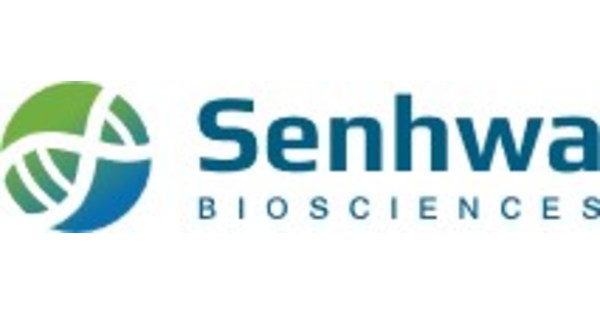TAIPEI and SAN DIEGO, Oct. 20, 2025 /PRNewswire/ — Senhwa Biosciences’s investigational new drug Silmitasertib (CX-4945) was recently featured in an official post by Google DeepMind, following a major breakthrough by the tech giant’s biological artificial intelligence (AI) system.
DeepMind reported that its latest AI model successfully generated and experimentally validated a new hypothesis for cancer treatment, calling it “a milestone for AI in science.” Through large-scale analysis of tumor cell data and more than 4,000 potential drug candidates, DeepMind’s model identified CX-4945 as a key molecule that significantly enhances antigen presentation—a crucial process that enables the immune system to recognize and attack tumor cells.
This groundbreaking finding suggests that CX-4945 could unlock a new therapeutic direction in cancer immunotherapy, potentially transforming how “cold tumors”—those invisible to immune cells—can be converted into “hot,” immune-responsive ones.
AI-Driven Biomedical Innovation: Turning Cold Tumors Hot
Google CEO Sundar Pichai wrote on X (formerly Twitter), “With further preclinical and clinical testing, this discovery could reveal a promising new avenue for developing anti-cancer therapies.”
Developed in collaboration with Yale University, DeepMind’s C2S-Scale model, built on the Gemma architecture and comprising 27 billion parameters, successfully predicted that inhibiting protein kinase CK2 with CX-4945 could significantly increase MHC-I expression and antigen presentation—a concept never previously documented in scientific literature.
Follow-up laboratory studies confirmed these hypotheses: when human neuroendocrine cells were treated with CX-4945 and low-dose interferon, antigen presentation increased by approximately 50%, making tumor cells more visible to immune attack.
Silmitasertib Recognized in DeepMind’s Research Findings
Silmitasertib (CX-4945) is Senhwa’s first-in-class CK2 inhibitor, currently under clinical development across multiple cancer indications. To date, the compound has been administered to hundreds of patients worldwide, demonstrating a favorable safety profile and encouraging efficacy signals.
In the United States, CX-4945 has been selected by the Beat Childhood Cancer Research Consortium and is now being evaluated in collaboration with the Penn State Health Children’s Hospital for the treatment of relapsed pediatric solid tumors.
Being identified and validated by Google DeepMind’s advanced AI platform not only strengthens the scientific foundation of CX-4945, but also highlights its strategic potential in the next generation of cancer immunotherapies.
A New Era of AI-Enabled Drug Discovery
DeepMind researchers noted that scaling biological AI models not only enhances prediction accuracy but also enables the generation of entirely new, testable scientific hypotheses. This integration of AI-driven simulation with experimental validation represents a new paradigm for biomedical discovery and drug development.
Although this research remains in the preclinical stage, it marks a transformative moment for the intersection of artificial intelligence and medicine. Senhwa believes that, through continued collaboration between AI innovation and clinical science, CX-4945 could accelerate its path toward becoming a breakthrough immuno-oncology therapy that benefits cancer patients globally.
As Taiwan’s biopharmaceutical innovation gains international recognition, Senhwa aims for its CX-4945 program to stand alongside the nation’s semiconductor success — becoming a new “National Shield” for global health.
News source:
https://blog.google/technology/ai/google-gemma-ai-cancer-therapy-discovery/
SOURCE Senhwa Biosciences, Inc.



